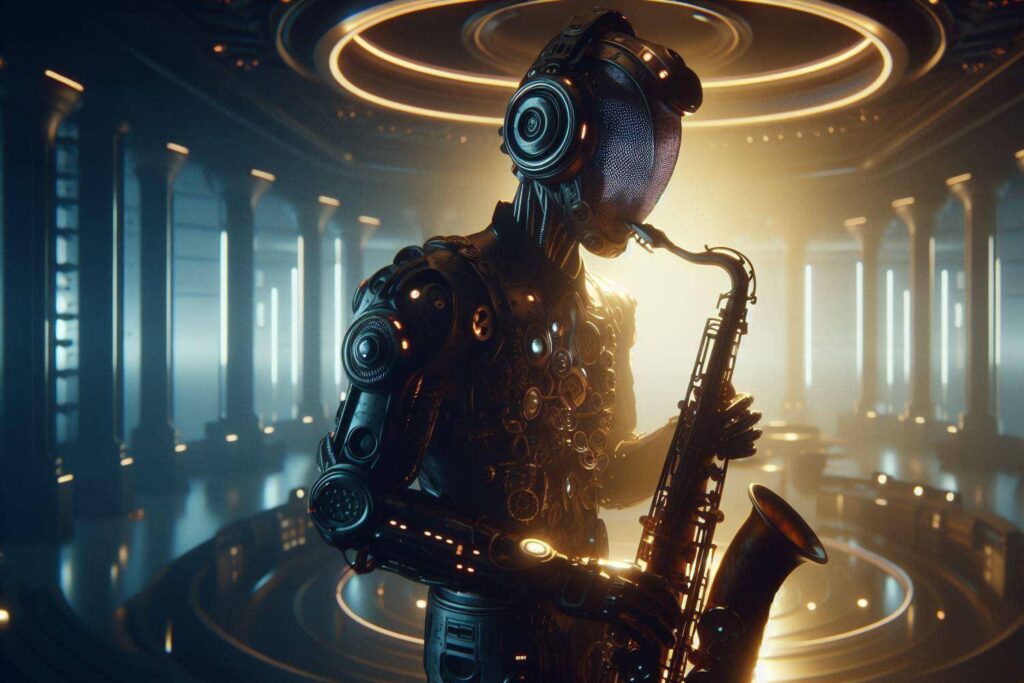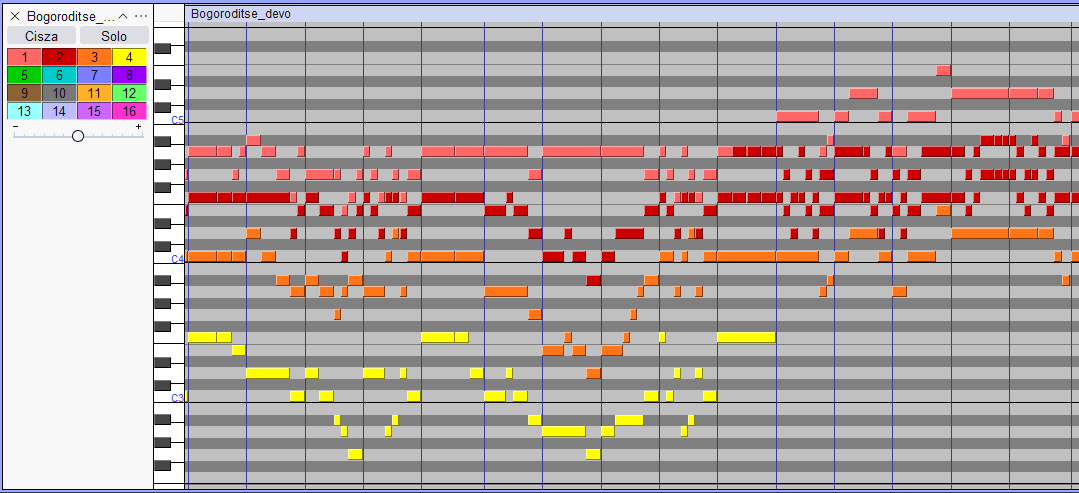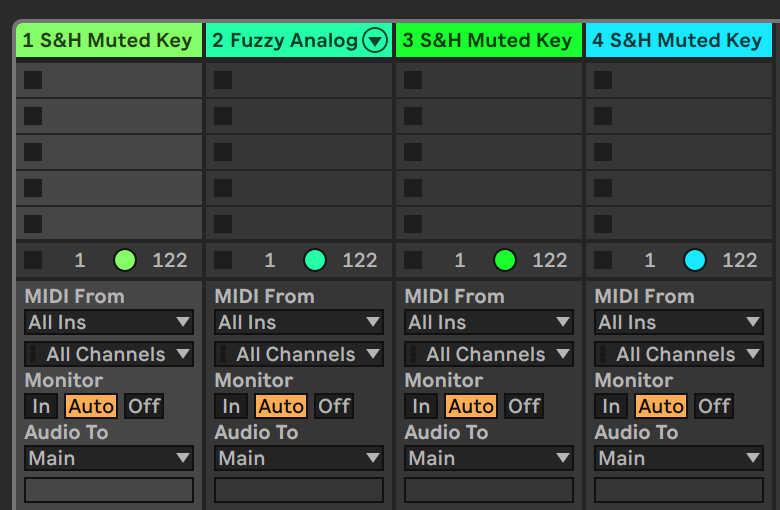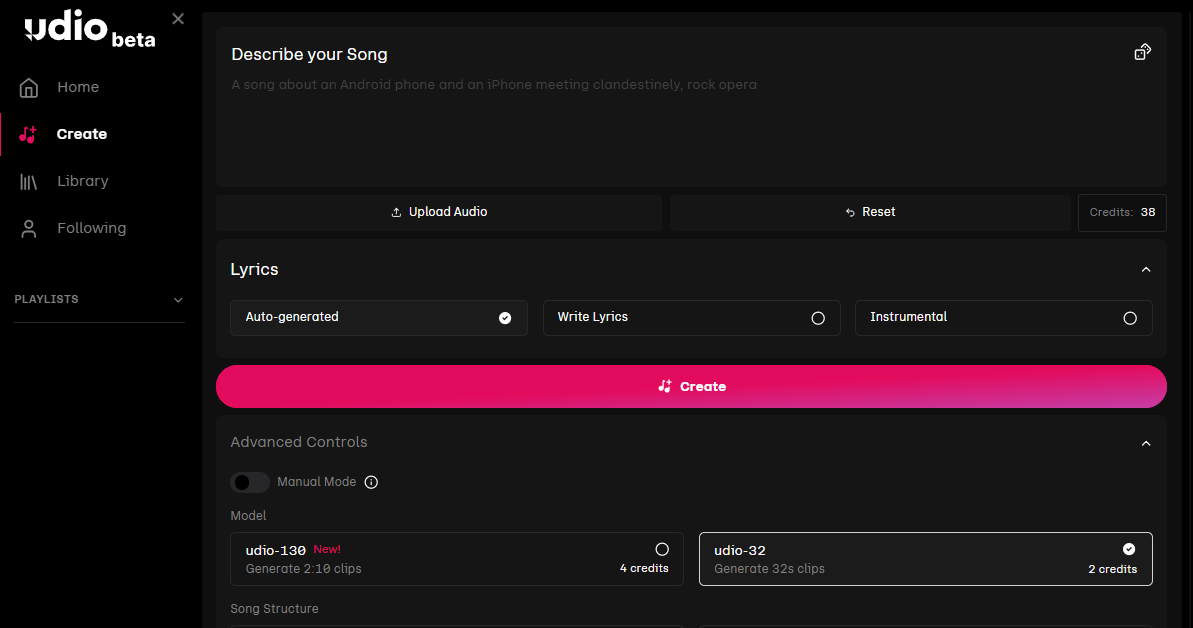Discover AI-Generated Music: A New Era of Creativity
Artificial neural networks are revolutionizing music creation, learning to generate melodies, harmonies, and entire compositions in various styles. By analyzing vast musical datasets, these AI tools inspire composers, assist in creation, and personalize soundscapes, making high-quality music more accessible and innovative.
About the project
The project was created in collaboration between Ph.D. Agnieszka Nowak-Brzezińska, Ph.D. Adrian Robak, professors at the University of Silesia, and Andrzej Cieslik, a student at the University of Silesia in Katowice.
Artificial neural networks are transforming music creation by mimicking how the human brain processes sound patterns. These networks, using deep learning algorithms, analyze vast amounts of musical data, learning to generate melodies, harmonies, and even entire compositions in various styles. AI music tools can assist composers, inspire new ideas, or even create personalized soundscapes. With capabilities to understand and recreate the nuances of rhythm, melody, and genre, neural networks are opening new frontiers in music, making high-quality composition more accessible and versatile than ever before.
Commercial online models
Udio
Udio is an innovative AI music generator often called the “ChatGPT for music.” It allows users to describe desired music in terms of genre, instruments, and style, converting these text prompts into high-quality compositions. Developed by former Google DeepMind researchers, including David Ding and Conor Durkan, Udio democratizes music creation, making it accessible even to those without musical training. This platform showcases the power of AI in creative fields, revolutionizing how music is conceptualized and produced
AIVA
AIVA (Artificial Intelligence Virtual Artist) is an AI-powered music composition software that creates original music by learning from a vast library of existing compositions. It is designed to assist composers and musicians in generating new, unique pieces across various genres and styles
Magenta
Magenta is an open-source research project by Google that explores the intersection of machine learning and creativity, specifically in music and art. It leverages TensorFlow to develop AI models that can generate music, create artwork, and assist with other creative tasks. Magenta’s tools, such as *MusicVAE* and *NSynth*, allow musicians and artists to experiment with AI in novel ways, from generating melodies to transforming sounds. The project aims to advance the understanding of how AI can be used as a tool for creative expression rather than simply automating the creative process
Magenta
There are many AI music generation tools available in 2024, with new platforms constantly emerging. Popular ones include AIVA, Soundraw, Boomy, and Beatoven, each offering unique features for different users, from beginners to professionals. These tools provide powerful customization and royalty-free music generation, making high-quality composition more accessible to a wide range of creators
Generated samples
Example 1. Udio
Generating music from a written description: “Create something in the style of a chaconne for violin.”
Example 2. Udio
Some rock music, random text, model udio-130
Example 3. AIVA
Professor Robak created the composition “Bogoroditse Devo,” which was initially written using MIDI notation.
Subsequently, the project was processed through an AI model on the AIVA platform, and here is the effect.
Example 4. Udio extend + Manenta
Step 1 MIDI file
Before
Step 2 Udio extend fuzze sample
Using a “Bogoroditse Devo” MIDI sample as input will yield a MIDI output. In this case, a ‘skin’ was applied to the MIDI channels using libraries available in Ableton Live.
Fuzze skins has been added:
Step 3 Udio Extend
The final effect showcases the capabilities of AI in enhancing and reimagining classical compositions.
After:
Short summary
The project aimed to explore the potential of artificial neural networks in music generation. As part of this initiative, a simple model was developed using Python libraries, alongside an analysis of commercial solutions in the field.
Additionally, the project utilized the Ableton program and the Magenta plugin to enhance music generation. Further details are available in the Colab notebook.
In the future, users will undoubtedly have access to increasingly advanced models trained on carefully curated samples. The open question remains whether the art created by humans so far will serve only as a reference or if AI-generated compositions will become the basis for training future models.
Thank you
Thank you all who supported this project. Your encouragement and feedback have been invaluable in shaping its development. A special thanks to our collaborators and everyone who believed in the potential of AI in music.
Please contact for more information:
Agnieszka Nowak-Brzezińska
Adrian Robak
Andzej Cieslik










